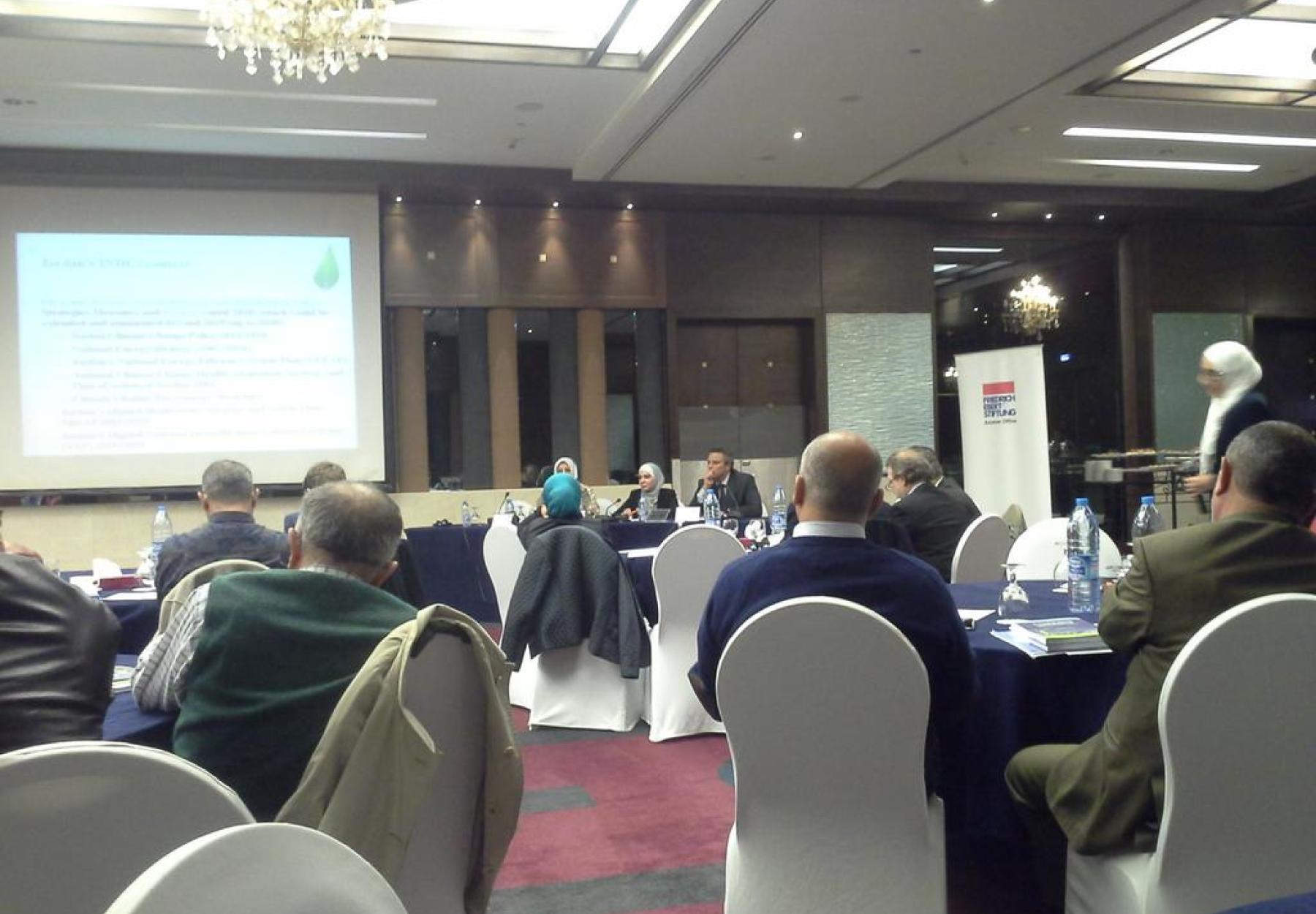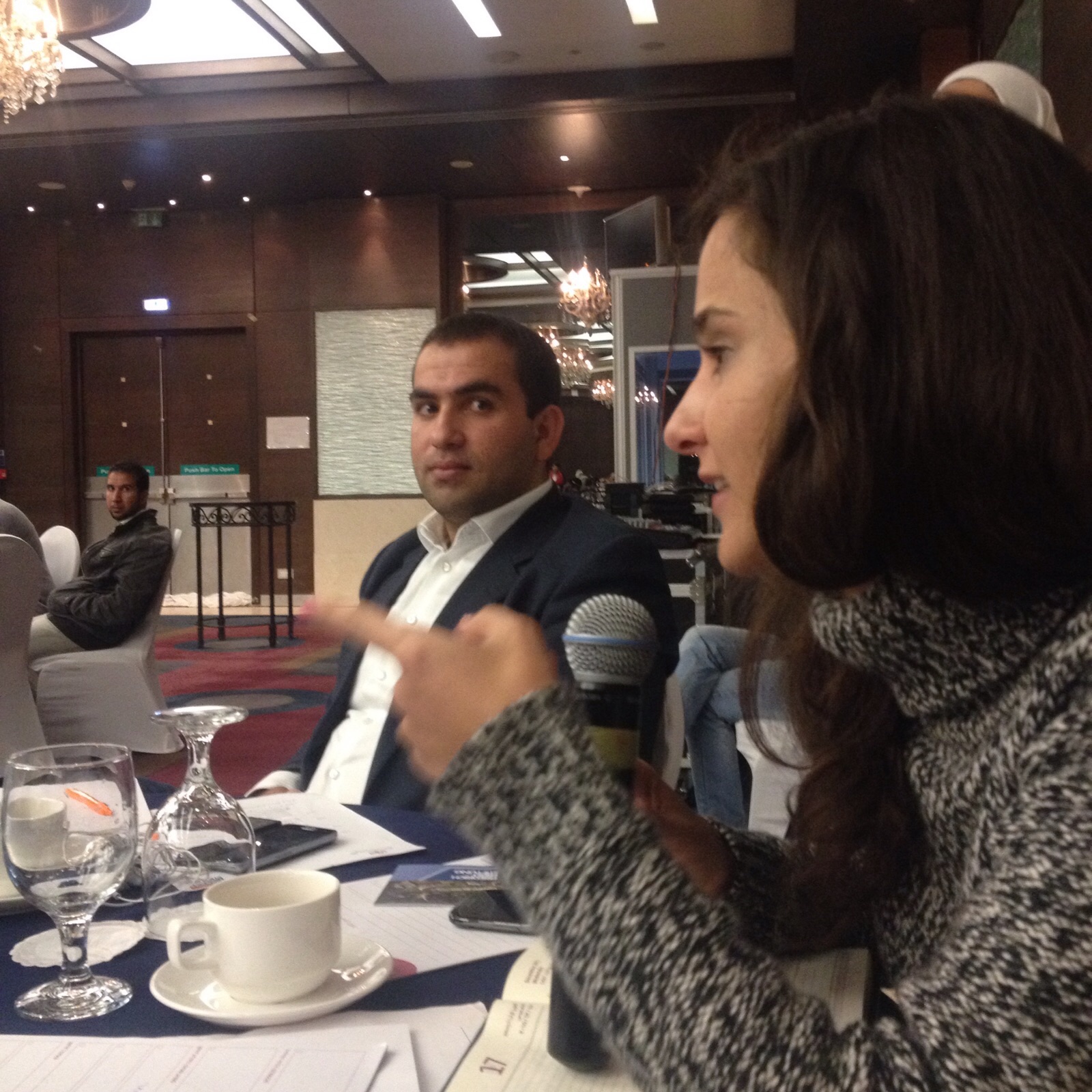
APN has taken part in a meeting in Amman on Nov.5th,2015 on climate change called by Jordan Ministry of Environment in conjunction with Friedrich Ebert Foundation. The meeting was held to discuss Jordan’s obligations in the wake of the Paris Climate Change Conference which convened on Nov.30, 2015 and ended on Dec.12th, 2015.
Jordan has proposed to voluntarily reduce 14% of its gas emissions by the year 2030 and increase use of renewed energy by 10% by the year 2020 up 8% from 2013. APN Manager Mariam Al Jaajaa and Advocacy officer Heather Al Aydi represented APN at the meeting.
Al Jaajaa focused on three points, primarily the issue of justice, where she emphasized that developed countries have to bear the major responsibility towards reducing causes of the climate change. She added that this would be an important step forward making a positive change in relation to the Climate Change Conference held in Doha, Qatar in 2012 whose slogan was that Arab countries should take the lead in reducing emissions.On obligations to build a ‘ green economy’, she said there is a need for a carefully and accurately planned strategy to meet local needs and priorities, otherwise, she noted, funds used to support it will be used to market ‘green’ products of developed countries. Al Jaajaa asked about the current and future strategies on engaging the civil society not only in implementing projects but also in setting priorities, policies, follow-up and monitoring procedures.Unlike results of previous conferences where some major Western powers in addition to China remained outside the Kyoto Protocol, at the Paris meeting 195 countries agreed to limit global warming to 2C degrees above pre-industrial level with the aim to limit the increase to 1.5C. Such target will benefit the Arab region considering that most of its areas are exposed to impacts of climate changes, mainly drought, heat waves, loss of fresh water and rising sea level.Superpowers’ delegates and global companies’ lobbies have rejected that such a temperature reduction be mandatory and subject to strict monitoring, but made promises to implement the Conference resolutions.  APN believes that unless the global civil society escalates a united position, commitment to implementation would remain a dead letter, considering that these countries and companies are captive to their capitalist consumption and production pattern and cannot counter its nature to preserve sustainability of life and nature on the earth.Meanwhile, Palestine observer status has been upgraded to a state party in The UN Climate Change Framework Convention. It is also worthy to note that there have been feelings of disappointment as a result of a rejection by some countries to refer to peoples living under occupation as a group suffering from impacts of the climate change. Arab civil society groups and organizations lobbying to affect policies should do more in this regard.
APN believes that unless the global civil society escalates a united position, commitment to implementation would remain a dead letter, considering that these countries and companies are captive to their capitalist consumption and production pattern and cannot counter its nature to preserve sustainability of life and nature on the earth.Meanwhile, Palestine observer status has been upgraded to a state party in The UN Climate Change Framework Convention. It is also worthy to note that there have been feelings of disappointment as a result of a rejection by some countries to refer to peoples living under occupation as a group suffering from impacts of the climate change. Arab civil society groups and organizations lobbying to affect policies should do more in this regard.